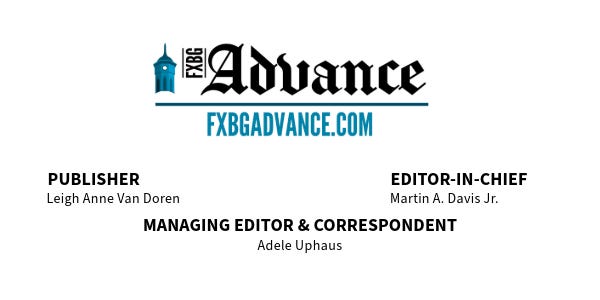
By Jay Brock
GUEST WRITER
Medicare was enacted in 1965 as a “public good” provided primarily for the benefit of the American people rather than business.
But, as in other areas of our present healthcare system, the “traditional” Medicare of 1965 is now undergoing a worrisome shift to being privatized, asmore seniors sign up for Medicare Advantage (also known as Medicare Part C or MA) plans run largely by private, investor-owned, for-profit health insurance companies, where profit, not healthcare, is their primary focus.
A recent report by Physicians for a National Health Program (full disclosure: I’m a member) details many of the problems with these so-called “Advantage” plans. According to the report, Advantage plans are “causing significant harm to America’s patients, providers, and healthcare system. The insurers who run MA plans claim they lead to better patient care and outcomes while saving money, but this is far from the truth.”
Let’s take a closer look, starting with the role of the for-profit MA health insurance company, the middleman that pays the medical bills. Its business model: accumulate as many patient healthcare dollars as possible, and—in order to increase its profits—spend as few of those dollars on medical care as it can get away with. This is in keeping with its fiduciary responsibility to its stockholders to increase profits, but it also creates an irreconcilable conflict of interest, where your healthcare isn’t as important to the company as profit.
How does such a company behave?
First, it creates limited networks of providers, leaning especially on those with lower utilization rates. (For example, fewer tests ordered mean fewer dollars spent.) In addition, Advantage plans use prior authorizations: when your physician orders tests or treatments, many times they must first get approval from the health insurance company to make sure the bill gets paid. This process takes time, delaying your care, so your healthcare dollar sits in the bank account of the insurance company earning interest while you’re worrying if they’ll pay for what your doctor thinks you need. And then there are outright denials of care, where the insurance company says they won’t pay for the care your provider thinks is necessary for you to have. (Insurers are relying on AI to make many of these decisions.) No patient wants to or should be subject to denials of care in order to protect the insurance company’s profits.
How does all this affect your providers? Negatively. Many physicians are outright excluded from the plans, especially those who may have the sickest or poorest patients. Most physicians are extremely frustrated with the obstructive bureaucracy in dealing with prior authorizations and denials of care (estimates of hours wasted by medical practices dealing with prior authorizations run from 11-20 million hours/year). And the moral injury of dealing with this bureaucracy impeding needed healthcare is one burden that no physician should endure.
Hospitals as well have difficulty dealing with MA plans. Some are simply not “in network.” Others, fed up with low reimbursements, prior authorizations, or nonpayment for services rendered, simply refuse to maintain their association with these plans. Patients are denied their choice of provider, and providers no longer have access to patients.
Do MA plans deliver better care? Of course, insurance companies don’t deliver care. Healthcare providers give care. But comparative studies show that outcomes for MA patients are not superior, and in some cases are worse, such as with delayed or denied care or with certain cancers, where MA patients might not have access to leaders in the field.
And the idea of MA saving money has not been borne out either. Studies claim MA is overcharging Medicare to the tune of $100 billion/year—costs that weaken the Medicare trust fund and are a burden to every American taxpayer.
When it comes to choosing a plan, Washington sets the rules, and the result is that Advantage plans have much lower premiums than traditional Medicare (where most people also get a supplemental Medigap plan to cover the 20% of costs Medicare doesn’t pay for). The kicker regarding those low MA premiums: if you use your health insurance, out of pocket expenses can be as high as $8,850 this year—even higher if an out of network provider is used. Traditional Medicare with a Medigap plan can have much lower out of pocket costs.
Some people, for financial reasons, or because it’s the requirement of an employer, join an Advantage plan. Some people, especially those whose medical needs might not be great, like these plans, but for those who find them lacking, switching back to a Traditional Medicare plan can be vexing and expensive.
The bottom line? Our health insurance system should be structured to put the emphasis on healthcare, not profit. Traditional Medicare fits that bill.
Jay Brock is a retired physician living in Fredericksburg.
Links:
PNHP report on Medicare Advantage, “Taking Advantage: How Corporate Health Insurance Harms American Seniors:” https://pnhp.org/taking-advantage/
For out-of-pocket costs comparing traditional Medicare and MA plans:
https://www.consumerreports.org/money/health-insurance/pros-and-cons-of-medicare-advantage-a6834167849/
Medicare Advantage plans might be overcharging the Federal government by as much as $140 billion/year.
By Matthew Cunningham-Cook and Lucy Dean Stockton
The Lever, October 4, 2023
“The federal government is losing as much as $140 billion per year by subsidizing private Medicare Advantage plans, according to a bombshell new report. In the groundbreaking investigation, health care researchers identified the four major ways that private insurers systematically exploit the taxpayer-funded national health insurance program while denying care to the nation’s most vulnerable patients.”




Local Obituaries
To view local obituaries or to send a note to family and loved ones, please visit our website at the link that follows.

Support Award-winning, Locally Focused Journalism

The FXBG Advance cuts through the talking points to deliver both incisive and informative news about the issues, people, and organizations that daily affect your life. And we do it in a multi-partisan format that has no equal in this region. Over the past month, our reporting was:
$8 a month supports great journalism
- First to report on a Spotsylvania School teacher arrested for bringing drugs onto campus.
- First to report on new facility fees leveled by MWHC on patient bills.
- First to detail controversial traffic numbers submitted by Stafford staff on the Buc-ee’s project
- Provided extensive coverage of the cellphone bans that are sweeping local school districts.
- And so much more, like Clay Jones, Drew Gallagher, Hank Silverberg, and more.
For just $8 a month, you can help support top-flight journalism that puts people over policies.
Your contributions 100% support our journalists.
Help us as we continue to grow!
Support FXBG Advance for $8 a month







